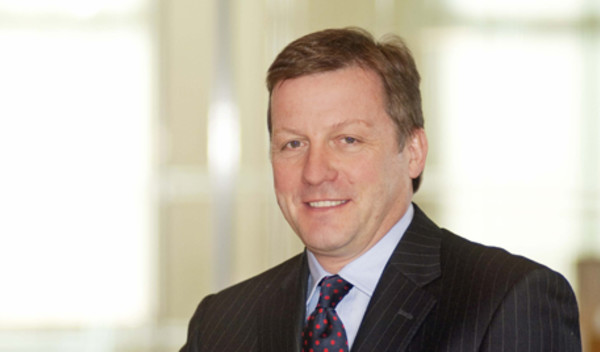

Clearly, Adrian Grace is a man who splits opinions.
But one thing that is agreed on is that in the nine years Mr Grace has been at the helm of Aegon UK he changed the face of the business.
Last month, it was announced that he would be stepping down and would be replaced by Mike Holliday-Williams, who was most recently managing director of personal lines at Direct Line.
So, what is Mr Grace’s legacy likely to be?
If it is solely to be defined by the past 12-18 months, it might not make for favourable reading, owing to the plethora of problems Cofunds – the platform Aegon acquired in 2016 – has suffered from.
It was hit by problems in the immediate aftermath of its replatforming in May 2017, with advisers unable to get valuations for their clients’ portfolios or make transfers.
Other issues have ranged from clients not receiving income payments on time, to customers not able to sign into the platform.
In August, the company said it believed it had restored the service levels on its platform and added it would complete several upgrades to the system in the coming months.
Cofunds became part of Aegon in 2018, ditching its name in the process.
Key Points
- Mr Grace has stepped down as chief executive of Aegon UK
- His recent legacy has been problems with integrating Cofunds
- He nonetheless has bequeathed a company set up for the future
Mike Barrett, a consultant at The Lang Cat, says: “I think undoubtedly if you are an adviser or customer there were a number of things which, Aegon would have said, slipped below the standard of what they wanted to achieve through the integration.
“Inevitably with these things, even though they might say, ‘It is only a small percentage of customers’, the nature of what we are doing here is: someone is investing their financial life with the company, so if something does go wrong it becomes very much a big problem and very personal to those customers.”
Mr Barrett adds that replatforming is challenging and can take as much as 18 months to be completed.
Ex-Skandia chief executive Peter Mann says: “With the huge amount of replatforming that is going on, we sometimes lose sight of why people replatform. Why bother?
“Well, it’s because of the constant strive for optimum efficiency in the long term, that forces people to make these decisions.
“In [Mr] Grace’s case, he acquired Cofunds, which was on a particular platform. It is harder to run a couple of platform structures than one.
“And it is easy to have a go at the firms which have replatformed, but the driver is long-term efficiency and value for advisers.”
Aegon says the platform has returned to its target level of service in the second half of 2018.
It adds that the actions also puts it in a strong position to grow the business. Its focus now is on delivering the proposition enhancements that advisers have requested.
So perhaps it was a surprise for the market when Mr Grace announced he was leaving, particularly because last year, in an interview with FTAdviser he sounded like a man with unfinished business.
Aegon’s evolution
When Mr Grace joined Aegon in April 2011 to manage the UK business, platforms were largely functional instruments that allowed assets to be put in a single place and they had a completely different charging structure.
As platforms evolved, people started to look at ways they could create tools to help advisers do their business more efficiently, while focusing on clients.
Mr Mann says: “In his time at Aegon, he transformed an old style pensions platform business, into the leading platform business in the UK.”
Indeed, it is a very different animal.
For a start, it has grown from a business that held £40bn of unit-linked pensions in 2009, to today managing £175bn of pension and investment assets.
Before buying Cofunds, Mr Grace was already trying to clean up the business, having sold Aegon’s problematic annuity book to Legal and General.
Following the introduction of the Solvency II directive, the capital volatility associated with annuities was very significant, exacerbated by the declining market, it created poor value for customers.
Former Partnership chief executive Steve Groves says: “If you look back to Aegon, prior to the financial crisis, it had made some poor decisions.
“It had entered the annuity market, had increased costs and found itself in quite a difficult position as it entered into the financial crisis where you would say it was positioned in the wrong markets at the wrong time.
“I think what [Mr Grace] did initially as chief executive was to reposition the business.
“He got rid of the bits that did not make sense and there were a number of parts you would term as non-core and he went through the business, looking at what it is going to be in the future.”
The transformation of Aegon has been likened to the steering of a supertanker in the ocean, a job that would probably need a strong personality.
A former colleague says: “He wanted his own way too much all the time.”
Others have been a bit kinder.
Mr Mann says: “He is a wonderful human being. People in Aegon will remember he is a guy you want to work with and for.
“You could argue we were competitors [at] one point in time. He is a man you could respect very easily.
“You don’t get to be a CEO for as long as he has, without being supremely efficient at what you do.”
Seeking scale
What Aegon has achieved in Mr Grace’s time, particularly with its purchase of Cofunds, is scale.
The acquisition has made it the largest platform in the UK, with nearly £140bn in assets under management.
Mr Grace has previously said: “It’s about scale in every business and if you don’t do it you will fail.”
Scale is important. The bigger your asset base, the more a company can spread its services.
If you need 10 people to run a platform with £10m, you do not need 20 people to run one with £20m.
Mr Mann adds: “Scale brings you efficiency because there is no direct do-relation between asset scale and resource allocation.”
But with Cofunds, for all its size, it was seen as a problem child.
Speaking to FTAdviser in 2016, Clive Bootham who was chief executive of Cofunds between 2002 and 2003, heralded Aegon’s acquisition as a good move, but warned about data integrity issues.
When the transaction was completed in January 2017, Cofunds was bought at a discount of £140m.
For Aegon, the acquisition activity looks likely to continue.
Back in July it wasreported that Zurich was contemplating the sale of its adviser platform and that Aegon was the rumoured buyer.
Aegon has neither confirmed or denied this, but Mr Grace told FTAdviser at the time that if an opportunity presented itself the company would look into it to see whether it would make strategic sense.
Regulation has dominated the landscape over the past 10 years, with pensions freedoms, the Retail Distribution Review and Mifid II, among other changes, making it somewhat more challenging for companies to innovate as quickly as they would like to.
As that onslaught of regulatory change appears to be calming down, for all that might be said of Mr Grace, he would want to feel he has set Aegon up for the future.
Ima Jackson-Obot is deputy features editor of Financial Adviser and FTAdviser.com



